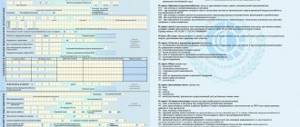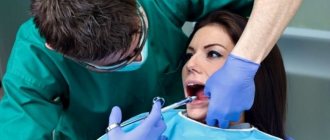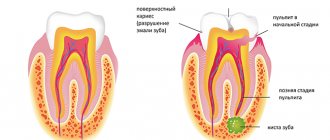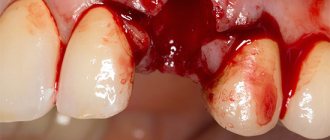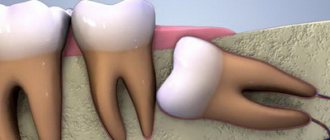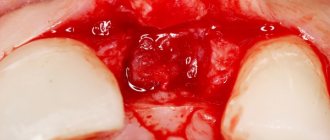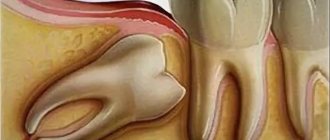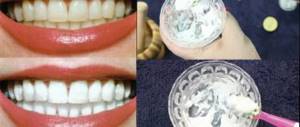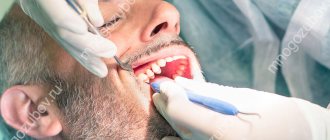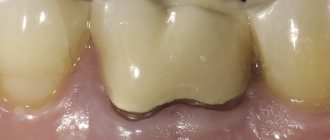27.11.2019
Tooth extraction is a responsible, not the most pleasant event in a person’s life, which must be approached with the utmost care and caution. Despite the ease of the procedure (at first glance it may seem harmless), you need to be familiar with all possible complications and be ready to take measures to eliminate them. Drugs that will help you recover after tooth extraction: hemostatic drugs, anti-inflammatory, decongestants.
Tooth extraction can be of varying degrees of complexity. The procedure can last from several minutes to up to three hours. There must be certain indications for this type of surgical intervention, and if you follow all the doctor’s recommendations, after removal, there should be no complications during healing.
Every person faces the question of what medications should be taken after tooth extraction in order to promote a speedy recovery? There are currently a huge number of them, but despite the variety, there are certain proven medications that will help you recover without much effort after such a traumatic procedure.
Anesthesia methods
Anesthesia can be local or general. The local form is divided into external and injection methods. The external method allows you to anesthetize superficial tissues using medicinal substances. These can be special ointments, gels, devices with electromagnetic waves, simply applications. The last method is used most often. The application is a cooling plate. It is applied to the gums, and the patient does not feel pain. This method is usually used to remove baby teeth in children.
The injection method involves injecting an anesthetic substance through a needle.
There are 4 types of anesthesia:
- Conductor. The method allows you to anesthetize several teeth at once. An anesthetic is injected into the area of the last tooth where the branch of the nerve is affected, resulting in blockage of the entire nerve.
- Infiltration. An anesthetic substance is injected into the projection area of the apex of the tooth root.
- Intraligamentous. The medicine is administered through the gum. As a result, the tooth and the surrounding gum area are numbed. For this method, a special syringe with a dispenser is used. It allows you to administer a minimum of anesthetic substance.
- Intraosseous. It is the best anesthesia. In this case, the injection is made directly into the spongy bone. It is she who covers the dental alveoli.
General anesthesia (anesthesia) is done very rarely. It should not be used for people who have heart problems. This method of anesthesia is used only in the most difficult cases. Dentistry must be equipped with a special office and all the necessary equipment. And also during surgical operations, the presence of an anesthesiologist next to the patient is mandatory. Only the doctor decides which anesthesia is best for tooth extraction. Everything will depend on the complexity of the procedures and the general condition of the tooth.
Mouth rinses
"Chlorhexidine" 0.05%
For pharmacological purposes – antiseptic and disinfectant. Sold as a solution for external treatment, intended to restore damaged tissue and protect wounds after surgery. Particularly effective for inflammation of the socket (alveolitis). After tooth extraction, it can be used undiluted for rinsing (or rather, bathing) the oral cavity: hold a small amount of the drug in the mouth for a minute. Repeat 2-3 times a day. After the procedure, it is advisable to refrain from eating for 2-3 hours, since the drug promotes the formation of an antimicrobial film on tissues, which lasts for several more hours.
"Miramistin"
Local antiseptic, has a bactericidal effect and prevents the spread of many infections (especially herpes). It is used to a greater extent for inflammation of the socket of a herpetic nature, as well as for the development of stomatitis against the background of weakened immunity after tooth extraction. Available in the form of a spray, rinse and ointment. Use only as prescribed by a doctor.
Miramistin
Soda-salt baths
A fairly effective solution that is designed to relieve inflammation, disinfect and even reduce pain. The simplest and most common recipe is to dilute half a teaspoon of salt and soda in a glass of warm water. Carry out baths 3-4 times a day or carefully apply a cotton swab soaked in the solution to the wound.
Salt and soda
Herbal infusions
A folk remedy for disinfecting tissues, relieving swelling and inflammation. You can use chamomile, calendula and sage (oak bark, which has an astringent effect, is not recommended). Unlike medications, herbal infusions are not as effective, but can be an addition to therapy.
Camomile tea
Basic painkillers
Not any anesthesia can be used when extracting a tooth. In dentistry, only the most common and effective medications are used. And almost every hospital has Novocaine.
But in modern treatment, novocaine is used much less frequently. If previously not a single operation could be done without it, now this drug causes an allergic reaction in most people.
It has a number of side effects:
- dizziness;
- lethargy;
- lowering blood pressure.
Today there are more intense anesthetics, and therefore novocaine is used only in combination. It is injected into the body with a small dose of adrenaline. In combination, these drugs have the best analgesic functions. But such a mixture should not be prescribed to people whose blood pressure is off the charts.
For infiltration anesthesia, a 0.5% lidocaine solution is used. This drug can be used for the conduction method; only a 1–2% solution is required. For an adult, the norm is 300–400 mg.
Side effects of this medicine include:
- headache;
- fatigue;
- loss of sensation in the lips and tongue;
- heart rhythm is disturbed;
- blood pressure decreases;
- there may be hives.
The most modern anesthesia is a medicine based on the substance articaine. Such drugs can provide long-term and reliable pain relief. It is used by a large number of dental surgeons. The substance reaches its maximum effect after 10 minutes and maintains its result for 1–3.5 hours.
But no matter how good the drug is, it always has side effects:
- muscle twitching;
- headache;
- tremor;
- nausea;
- vomiting reflex;
- diarrhea.
These are the most common side effects. But sometimes others happen:
- blood pressure decreases;
- cardiac arrhythmia is disturbed;
- rashes appear on the skin;
- angioedema may occur.
These painkillers cannot be used for meningitis, tumors, osteochondrosis, spondylitis, tuberculosis, metastatic lesions of the spine, heart failure, tumors in the abdominal area, severe arterial hypotension, and hemostasis disorders. Use with caution during pregnancy. The drug may cause a decrease in the fetal heart rate.
A very good drug based on articaine is Ubistezin. It also contains adrenaline. It reduces blood vessels in the area where anesthesia was administered. This makes it difficult to absorb the substance. As a result, the analgesic effect begins to act within 3 minutes. In addition to the above listed side effects that drugs based on articaine have, Ubistezin also adds the likelihood of an ischemic zone in the area where anesthesia was administered. This occurs if a blood vessel has been hit or a nerve has been damaged.
Removing wisdom teeth
Anesthesia for wisdom tooth removal is no different from conventional means for treating other teeth. The doctor decides independently how to administer the medicine depending on the specific situation.
Most often, wisdom teeth are removed not because they are affected by caries, but because of their abnormal location. As a result, these teeth have the pathology dystopia or retention.
- Dystopia is the process of eruption of a wisdom tooth that is displaced towards the cheek or tongue.
- Retention is when a wisdom tooth has formed but has not erupted through the gums. In this case, the dentist makes an incision in the gum, removes the wisdom tooth and stitches the incision. Typically, such surgical procedures are performed under local anesthesia.
When to see a doctor
The appearance of some conditions is a clear reason to urgently contact a dentist or go for an emergency appointment:
- body temperature above 38 degrees, this indicates either a serious inflammatory process or an allergic reaction to the medications used;
- pain that does not subside over time and is not relieved by painkillers;
- bleeding that does not stop for more than twelve hours, or large blood loss within twelve hours;
- severe swelling that makes it difficult to swallow and open your mouth.
The above tips on behavior after tooth extraction and alarming symptoms are usually voiced by the doctor at the end of the appointment. Some clinics provide a printed reminder.
Removing baby teeth
Milk teeth that can no longer be cured, but they provoke the development of acute inflammation of the bone or periosteum, must be removed. Which method to use will depend on the specific situation.
For example, the milk tooth being removed is already well loosened and the pain when pulled out will be minimal. In this case, the doctor may advise putting on an application, gel or aerosol. Lidocaine aerosol is used quite often. There are 3 mg per 1 kg of body weight. For children, it is better to apply this substance using a cotton swab.
For more serious dental problems, children are given infiltration anesthesia. Lidocaine, Ubistezin Forte and similar medications are used. Two injections are made - from the gum and from the tongue.
Children tolerate these painkillers well. But before using them, it is necessary to undergo tests to identify allergens. It is also worth clarifying whether the child has problems with the cardiovascular system.
Pros and cons of local anesthesia in dentistry
Among the advantages of local anesthesia:
- affordable price;
- lack of significant impact on the patient’s body;
- low risk of adverse reactions;
- the ability to treat and remove baby and molars without pain.
The disadvantages include:
- the possibility of developing allergies, including anaphylactic reactions, laryngeal edema;
- low effectiveness if there is a pronounced inflammatory process in the maxillofacial area.
If the anesthesia method is chosen correctly, the removal will take place quickly and without complications. Trust your health to experienced dentists. Then even the most complex dental problems will be solved quickly and without pain.
Anesthesia after tooth extraction
After the tooth has been removed and the anesthesia has begun to wear off, pain may occur. Sometimes the pain symptoms are very strong and unbearable to endure. In this case, they resort to repeated anesthesia. The most common pain reliever offered by dentists is Ketanov.
Ketanov is able to relieve a person from severe and sharp pain.
It is often prescribed after surgery. The drug can be used every six hours, but not more than one week.
Like any medicine, Ketanov has side effects.
These include:
- drowsiness;
- dyspeptic disorders;
- the appearance of dry mouth;
- accelerated heartbeat.
The drug should not be taken by people who have:
- bronchial asthma;
- ulcer of the duodenum and stomach;
- kidney diseases.
It is also undesirable for women to use during lactation and pregnancy. If after three days pain or swelling occurs again, you should immediately consult a doctor.
Admission restrictions
Sometimes you are not allowed to take Nurofen if you have a toothache..
There are a number of contraindications to the medication:
- individual intolerance to the components of the composition;
- bronchial asthma;
- severe pathologies of the gastrointestinal tract, including ulcerative lesions of the stomach and duodenum, as well as internal hemorrhages;
- pathologies of the organs of vision and hearing;
- acute renal failure;
- liver diseases accompanied by severe damage;
- cardiovascular abnormalities;
- pregnancy period, especially the 3rd trimester;
- breast-feeding;
- early childhood up to 6 years of age;
- pathologies of the production process of certain enzymes.
If you need to take medications at the same time after a tooth has been removed, you should consult your dentist. The medicine can be replaced with other non-steroidal anti-inflammatory drugs: Nise, Ketanov.
You should also avoid overdose of Nurofen after tooth extraction. Otherwise, serious disruptions to the body’s functioning may occur: nausea, vomiting, blurred vision, hearing, and neurological pathologies.
In order for the product to have a therapeutic effect, you should drink it strictly according to the recommendation of a specialist. It must be remembered that this technique only helps to relieve symptoms; if after tooth extraction a strong inflammatory process appears and the damaged area continues to hurt, then an additional complex based on antibacterial drugs is needed.
Medicines you shouldn't take
Many people use homemade medications for pain relief.
But they have low efficiency and can provoke undesirable results:
- Aspirin. The medicine is intended to perform an antipyretic function. The analgesic effect is minimal. Aspirin is a good blood thinner. This may lead to delayed bleeding. Although this medicine is included in many painkillers.
- Paracetamol. The drug can only cope with mild headaches. It has no anti-inflammatory effect and has a negative effect on the liver. Included in painkillers as an adjuvant.
- No-shpa. Many people think that this medicine is a pain reliever. But that's not true. No-spa is an antispasmodic drug that only eliminates pain associated with spasms. The pain after tooth extraction is completely different and no-spa will not be able to cope with it.
Anesthesia doesn't work
There are cases when the anesthesia does not work and the person feels pain. There are several factors why this happens:
- Alcohol. The chemical composition of ethyl alcohol can block the effects of the anesthetic. Therefore, it is not recommended to go to the dentist if you have recently consumed strong drinks.
- Using large amounts of painkillers. If a person is taking medications that contain painkillers, they should not be taken before seeing a doctor.
- A person may have individual immunity to certain anesthetics. This factor is very rare.
If the anesthesia does not work, then it is worth understanding the reason. Having received the result, the treatment is postponed to another day.
Pain relief tablets
The dentist prescribes a suitable pain reliever after tooth extraction in the form of tableted analgesics and non-steroidal anti-inflammatory drugs. The pain is also slightly relieved by local use of dental ointments, gels, and rinsing.
The most common, affordable and effective medications are: Ketanov, Ibuprofen, Nurofen, Diclofenac, Nimesulide, Analgin, Baralgin, Spazmalgon, Solpadeine. For pain of moderate intensity, Ibuprofen or Nimesulide is used as an anesthetic. In case of more pronounced discomfort, you should drink Ketanov or Ketorol in the form of tablets, or intramuscular injections are possible.
Eating after removal
It is not recommended to eat salty and spicy foods after tooth extraction. They irritate the mucous membrane and increase pain. Consuming hot food and drinks can cause bleeding and increase swelling.
Many people have been afraid to eat ice cream for a long time, claiming that they will catch a cold. Cold food has no effect on this. This problem can be caused by general hypothermia of the body or a draft. The main thing is to eat the ice cream slowly and not bite into large pieces. This delicacy is even recommended, because it forces the blood vessels to constrict, which means that there is no risk of bleeding.
Category Medicines / drugs Published by Mister stomatolog
